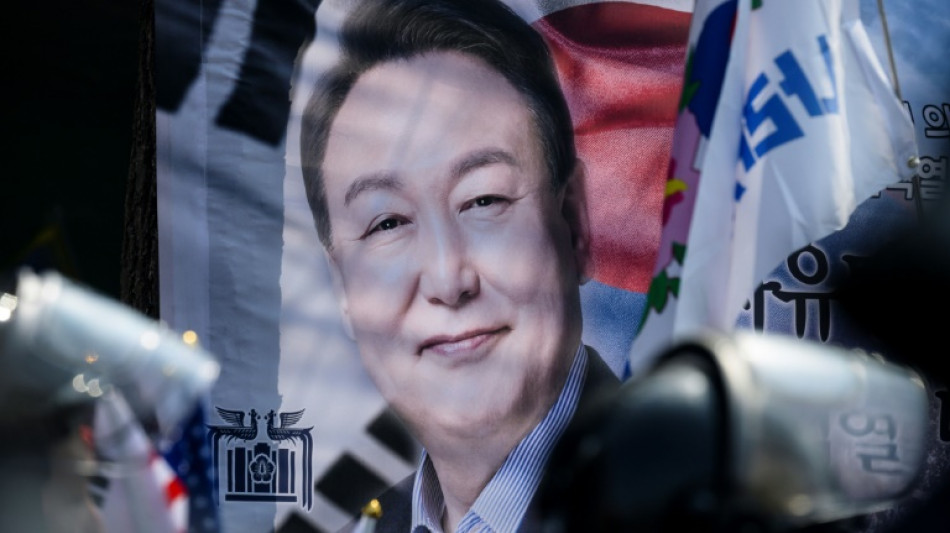South Korea sets presidential election for June 3: acting president / Photo: ANTHONY WALLACE - AFP
South Korea will hold a presidential election on June 3, the country's acting president said Tuesday, after Seoul's former leader Yoon Suk Yeol was removed from office over a disastrous declaration of martial law.
South Korea has been effectively leaderless since December, when former president Yoon attempted to subvert civilian rule but was quickly impeached by lawmakers and suspended from office.
A court last week upheld his impeachment, stripping him of the top job, and triggering fresh elections, which must be held within 60 days.
The government had held "discussions with the National Election Commission and other related agencies", Prime Minister Han Duck-soo said Tuesday.
It also took into account "the need to ensure smooth election operations and allow sufficient time for political parties to prepare," he said.
As a result they have decided "to set June 3 as the date for South Korea's 21st presidential election," he said, adding that the day would be designated as a temporary public holiday to facilitate voting.
Han called upon ministries and the National Election Commission to "make thorough preparations to ensure an election that is fairer and more transparent than ever, and one that can earn the trust of the people."
Unlike a regular poll, where a president-elect has a two-month transition period, the winner of the June 3 election will be inaugurated the following day.
For the time being, Prime Minister Han is running the government as the acting president, a job he resumed recently after the Constitutional Court threw out his own impeachment.
- Campaigning starts May -
Presidential elections are typically held on Wednesdays, but no specific weekday is required for snap polls triggered by a vacancy.
The official campaign period will run from May 12 until June 2.
Opposition leader Lee Jae-myung is the frontrunner in any polls, with a 34 percent support rating according to the latest Gallup poll.
His party already controls the National Assembly.
He narrowly lost to Yoon in the 2022 presidential election but staged a political comeback as leader of the main opposition, despite a career shadowed by legal troubles, including ongoing trials.
In distinct second place is Labour Minister Kim Moon-soo.
Polling around nine percent, he leads a pack of challengers from Yoon's People Power Party, which also includes former party chief Han Dong-hoon.
Millions of Koreans watched the Constitutional Court hand down its verdict live on television last Friday, stripping Yoon of office.
Yoon sent armed soldiers to parliament in a bid to prevent lawmakers from voting down his decree, which the court said amounted to deploying troops for "political purposes".
Yoon is the second South Korean leader to be impeached by the court after Park Geun-hye in 2017.
South Korea has spent the four months since the martial law declaration without an effective head of state.
The leadership vacuum came during a series of crises and headwinds, including an aviation disaster and the deadliest wildfires in the country's history.
Last week, South Korea was slammed with 25 percent tariffs on exports to key ally the United States after President Donald Trump unveiled global, so-called reciprocal levies.
Yoon also faces a separate criminal trial on charges of insurrection over the martial law bid.
R.Lacroix--LCdB
